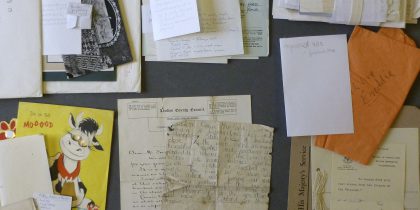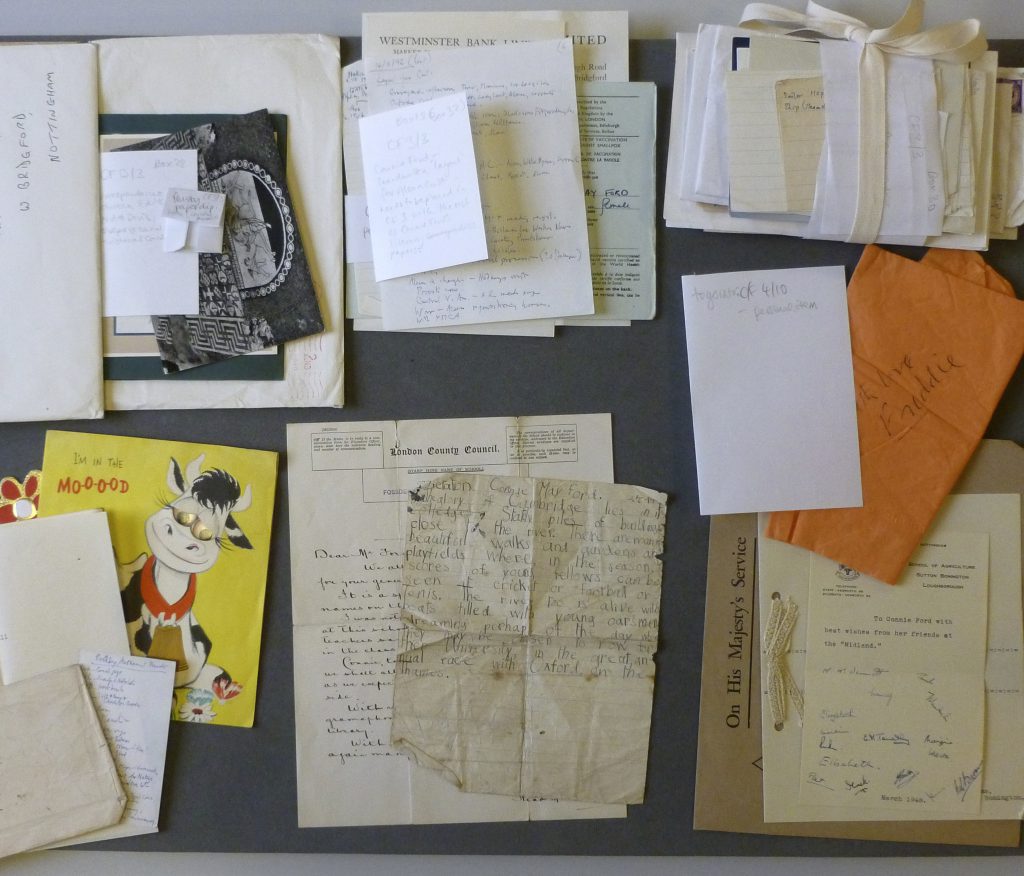
May 1, 2017, by Words on Words
5 Minutes with Elizabeth Ingham
This blog post was written by third year English student, Elizabeth Ingham. It originally appeared in the Manuscripts and Special Collections newsletter, Discover. You can view the full issue here.
Which course are you studying here at the University?
I’m doing an English BA degree.
Why did you apply for a Student Placement in Manuscripts and Special Collections?
I knew at the end of the first year of my degree course that I was interested in the conservation of books and manuscripts, and really loved the idea of being able to combine volunteering at Manuscripts and Special Collections with my third year Project Dissertation module. Also, in order to get a place on a relevant postgraduate course I would need to have some practical experience, and this placement provided the perfect opportunity. I’ve loved doing the module and although I’m doing an English degree, the module gives you the chance to be a literary historian, which has been an amazing opportunity.
Which collection are you working on and what does that work involve?
I’m working on the papers of Connie Ford, who was born in 1912 and qualified as a vet in 1933. The collection contains a huge variety of material, which all needs sorting and listing. I’m going through everything and making notes about what’s in each box, so for example, I’m reading all the letters, grouping them by person, and putting them in folders. Once all the sorting has been done, everything can be grouped in a more organised way and then catalogued by an archivist.
Connie seems to have kept just about everything and I never know what I’m going to find when I open a box. It’s like delving into someone’s private life and you do get emotionally attached. A typical box might contain items as varied as birthday cards, letters from important political figures, and parking tickets! I even found a small cuddly toy animal in one box, and a signed napkin in another. The earliest item in the collection is a description of the city of Cambridge, written by Connie when she was just six years old. Another interesting item is a letter from a fellow vet, sympathising with Connie’s struggle to find work after graduating in what was then a male-dominated profession. She was awarded an MBE in 1970 and the actual award is amongst her papers.
She was a very prolific letter-writer and in return she received an astonishing amount of correspondence. There are letters from penfriends, one of which contains a pressed snowdrop, sent by a Swedish penfriend in 1936. Other letters touch on her career, interests and hobbies. She was a life-long supporter of communism and received letters from many important political figures. I’m amazed that she was in contact with so many influential people.
She loved writing poetry and there are several letters from fellow authors who, like Connie, struggled to publish their work. Writing under various pen-names, such as Olive Pugh and Connie Rivers, Connie did eventually self-publish some of her poems, and her biography of Aleen Cust (Britain’s first recognised female veterinary surgeon) was published posthumously in 1990. Her interest in politics was often combined with poetry. She wrote an ode to the British Marxist philosopher Maurice Cornforth called ‘M.C.’, and another poem called ‘The General’ was written on the back of a letter she received from the Thatcher government.
The Connie Ford papers will form the basis of my third year dissertation, which will hopefully be comprised of a small edition of Connie’s poems and a reflective piece of writing considering the significance of materiality and textual interpretation based on my experiences with the collection. If I had to sum up Connie’s life I would say that she was a trailblazer on the fringes of history. The strength of her determination in veterinary science, politics and in her literary work is remarkable.
How will your experience here influence your future career plans?
I’ve applied for an MA in Conservation, but through the scheme I have been bitten by the volunteering bug, and will undoubtedly try to continue volunteering wherever my future career will take me.
Would you recommend the Student Placement scheme to other students?
Yes, I’d recommend it to everyone, it is such an invaluable and rewarding experience. But be warned – you will get attached to the collection you’re working on!
[Content and images reproduced with permission from Manuscripts and Special Collections]
No comments yet, fill out a comment to be the first



Leave a Reply